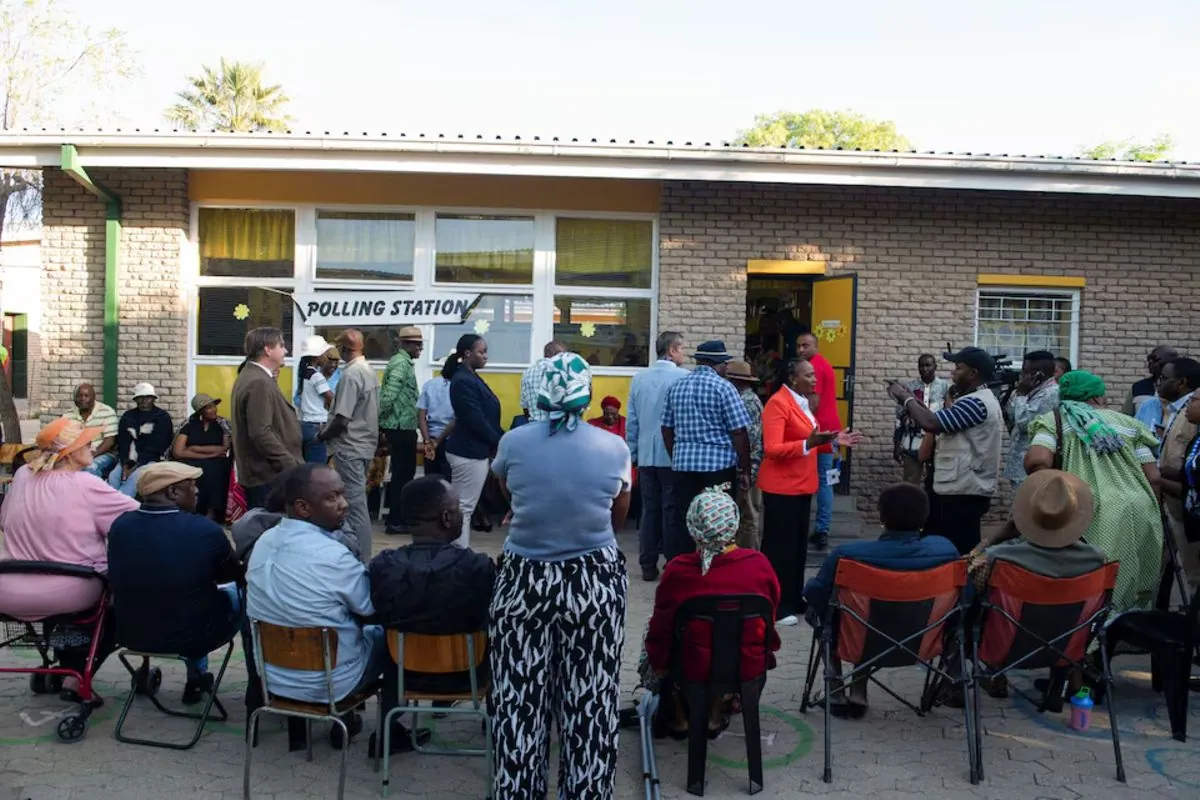Early-morning crowds gathered at Windhoekʼs polling stations on nov 27th as Namibians started voting for their next leader. The south-african nationʼs ruling party SWAPO which has been in power since the early 90s faces its toughest test yet
Teacher Tuna Alweendo noticed something different this time: “The line was much longer than what I saw back then in 2019; young people want to be part of change in their country“
SWAPOʼs Netumbo Nandi-Ndaitwah (who could become countryʼs first woman president) faces competition from 14 other candidates including Panduleni Itula – a dentist-turned-politician who came second about 5 years ago. The partyʼs support dropped from 87 percent to 56 percent between 14ʼ and 19ʼ; any candidate needs more than half the votes to win
After casting her vote Nandi-Ndaitwah pointed out: “Jobs are our main focus; droughts and covid made things worse for our youth“. Despite some growth in oil gas and green-energy projects‚ Namibia still has worlds second-highest income gap
About 1‚4 million people can vote in this small country (which has roughly 3 million citizens). The electoral commission says theyll announce results in a few days: meanwhile interim president Nangolo Mbumba – who took over after Hage Geingobʼs passing in early-24 – isnt running
- Oil sector investments
- Green hydrogen projects
- Gas exploration deals
The nations youth seems tired of high jobless rates corruption claims and wealth differences‚ but older and rural voters might help SWAPO stay in power
